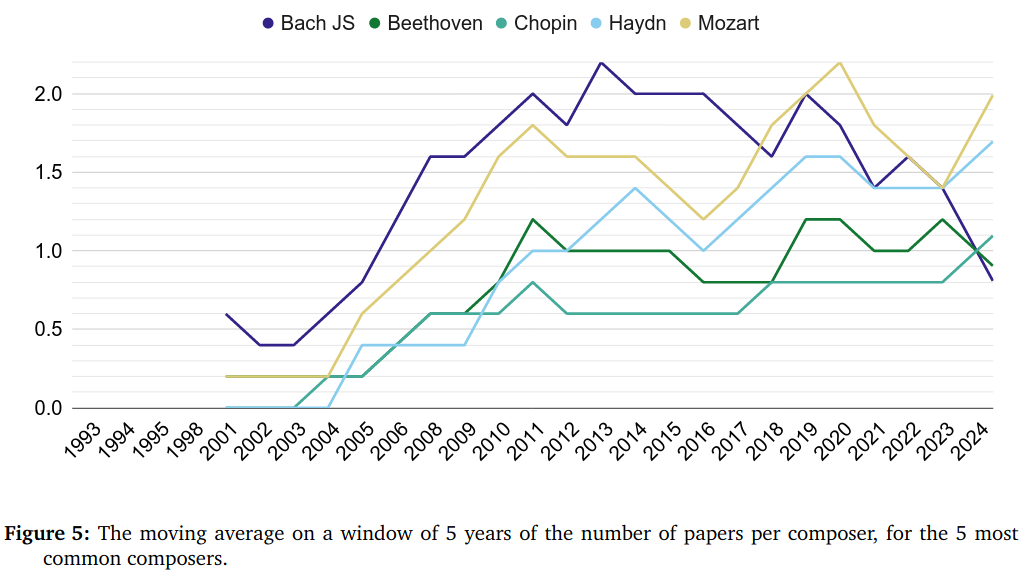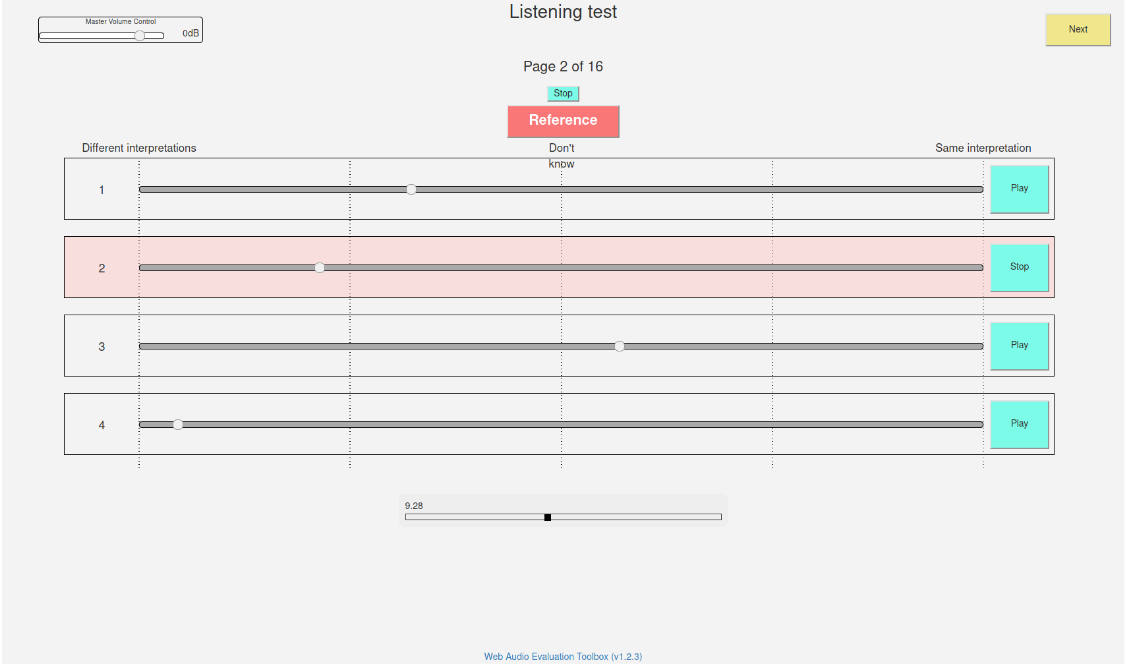Publications
Here is the full list of publications .
The following are some notable publications that you may be interested in.

Style-based Composer Identification and Attribution of Symbolic Music Scores: a Systematic Survey
See more
Federico Simonetta
Accepted in the Transactions of the International Society for Music Information Retrieval (TISMIR) 2025
- Full paper
- Journal link (to be updated)
Abstract
This paper presents the first comprehensive systematic review of literature on style-based composer identification and authorship attribution in symbolic music scores. Addressing the critical need for improved reliability and reproducibility in this field, the review rigorously analyzes 58 peer-reviewed papers published across various historical periods, with the search adapted to evolving terminology. The analysis critically assesses prevailing repertoires, computational approaches, and evaluation methodologies, highlighting significant challenges. It reveals that a substantial portion of existing research suffers from inadequate validation protocols and an over-reliance on simple accuracy metrics for often imbalanced datasets, which can undermine the credibility of attribution claims. The crucial role of robust metrics like Balanced Accuracy and rigorous cross-validation in ensuring trustworthy results is emphasized. The survey also details diverse feature representations and the evolution of machine learning models employed. Notable real-world authorship attribution cases, such as those involving works attributed to Bach, Josquin Desprez, and Lennon-McCartney, are specifically discussed, illustrating the opportunities and pitfalls of applying computational techniques to resolve disputed musical provenance. Based on these insights, a set of actionable guidelines for future research are proposed. These recommendations are designed to significantly enhance the reliability, reproducibility, and musicological validity of composer identification and authorship attribution studies, fostering more robust and interpretable computational stylistic analysis.

A perceptual measure for evaluating the resynthesis of automatic music transcriptions
See more
Federico Simonetta, S. Ntalampiras, F. Avanzini
Published in Multimedia Tools and Applications 2022
Abstract
This study focuses on the perception of music performances when contextual factors, such as room acoustics and instrument, change. We propose to distinguish the concept of “performance” from the one of “interpretation”, which expresses the “artistic intention”. Towards assessing this distinction, we carried out an experimental evaluation where 91 subjects were invited to listen to various audio recordings created by resynthesizing MIDI data obtained through Automatic Music Transcription (AMT) systems and a sensorized acoustic piano. During the resynthesis, we simulated different contexts and asked listeners to evaluate how much the interpretation changes when the context changes. Results show that: (1) MIDI format alone is not able to completely grasp the artistic intention of a music performance; (2) usual objective evaluation measures based on MIDI data present low correlations with the average subjective evaluation. To bridge this gap, we propose a novel measure which is meaningfully correlated with the outcome of the tests. In addition, we investigate multimodal machine learning by providing a new score-informed AMT method and propose an approximation algorithm for the p-dispersion problem.

Optimizing Feature Extraction for Symbolic Music
See more
Federico Simonetta, Ana Llorens, Martín Serrano, Eduardo García-Portugués, Álvaro Torrente
Published in ISMIR 2023
Abstract
This paper presents a comprehensive investigation of existing feature extraction tools for symbolic music and contrasts their performance to determine the feature set that best characterizes the musical style of a given music score. In this regard, we propose a novel feature extraction tool, named musif, and evaluate its efficacy on various repertoires and file formats, including MIDI, MusicXML, and **kern. Musif approximates existing tools such as jSymbolic and music21 in terms of computational efficiency while attempting to enhance the usability for custom feature development. The proposed tool also enhances classification accuracy when combined with other feature sets. We demonstrate the contribution of each feature set and the computational resources they require. Our findings indicate that the optimal tool for feature extraction is a combination of the best features from each tool rather than a single one. To facilitate future research in music information retrieval, we release the source code of the tool and benchmarks.